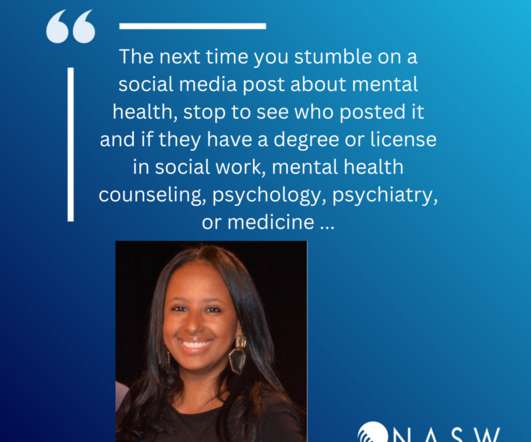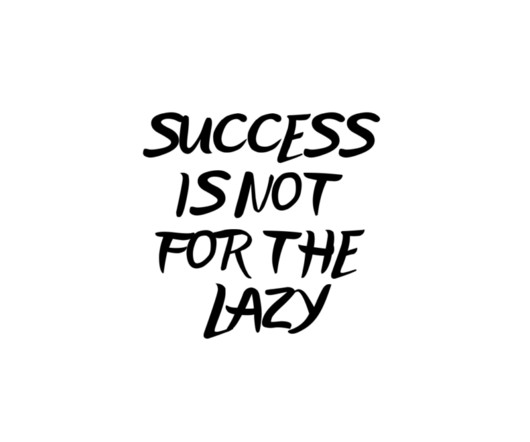Member Voices: Be Wary of Mental Health ‘Experts’ on Social Media
Social Work Blog
JANUARY 19, 2023
Monteiro, LCSW The past two years were filled with fear and uncertainty, exacerbating a mental health crisis with an increase in anxiety, depression, suicide rates, and substance abuse. False or misleading information perpetuates the stigma of mental illness and can contribute to feelings of inadequacy or lack of self-worth.














Let's personalize your content